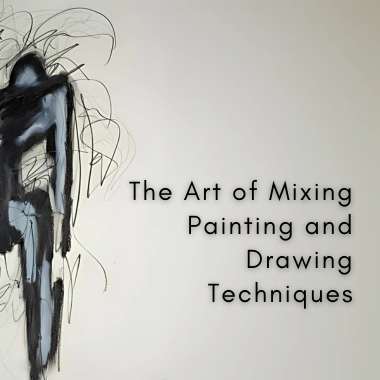Artículo: The Renaissance of Oil Painting in Contemporary Art
The Renaissance of Oil Painting in Contemporary Art
In a world saturated with fleeting digital impressions and quick fixes, there stands an art form that refuses to be rushed.
Oil painting—a medium rooted in centuries of tradition—has found its way back to the forefront of contemporary art, not as a nostalgic relic, but as a living, breathing testament to craftsmanship and beauty.
It transcends the limitations of time, offering a canvas where imagination is given the space to unfold slowly, with intention.
An Art Form Beyond Time
What makes oil paintings so captivating in today’s fast-paced world is their capacity to slow us down, and invite us into moments of reflection. The artist’s hand moves with purpose, layering colors, shadows, and light, allowing the viewer to explore each brushstroke.
This medium, with its rich textures and deep hues, offers an experience that no digital screen can replicate—a tangible immersion in the essence of art.
In the age of immediacy, oil paintings endure because they speak not only to the eyes but to the heart. It is this depth that has made oil painting the chosen medium for some of the most iconic works of art throughout history, and its revival in modern oil painting reflects a desire for something more.

Bridging Eras Through Brushstrokes
Oil painting is not merely a medium—it is a conversation between centuries. With each stroke of the brush, contemporary artists weave a delicate tapestry of time, blending echoes of the past with visions of the present.
The traditions that once shaped masterpieces are not forgotten; they are reinterpreted, allowing today’s artists to breathe new life into classical techniques.
This Head Shot and other oil paintings hold within them the spirit of artistic lineage, where the old and the new are intertwined in a quiet dance of light and texture. The very nature of oil paints invites contemplation, offering depth and dimension that cannot be rushed.

Whether through dramatic contrasts of light and shadow or the layering of translucent glazes, it creates a sense of depth unseen in other forms of painting. In this union of eras, we find a celebration of timeless beauty—where each canvas speaks both of history and the moment it inhabits.
The Timeless Revival: How Classic Oil Painting Techniques Reshape Contemporary Art
Oil painting, a medium with deep historical roots, maintains its allure in today’s art world. Techniques like glazing and impasto, known for their ability to create depth and texture, have long been celebrated for their artistic impact. Glazing builds up color through transparent layers, while impasto adds a tactile quality with thick applications of paint.
In contemporary art, these classic methods are skillfully adapted. Modern artists blend traditional glazing with innovative materials, enhancing their work with new textures and effects. Impasto, traditionally used to achieve realism, now conveys dynamic emotions and movement in abstract forms.

This resurgence of oil painting reflects a harmonious blend of the past and present. By reinterpreting established techniques, artists bridge historical artistry with current trends, creating works that resonate with both timeless beauty and contemporary relevance.
Through this evolution, modern oil painting continues to engage and inspire, connecting viewers with both its rich heritage and modern expressions.
Final Thoughts
The revival of oil painting in contemporary art is more than a nod to tradition—it is a testament to the lasting influence of artistic expression. This resurgence highlights how classic techniques, when reimagined through modern lenses, can offer new insights and experiences.
As artists continue to explore and innovate within the framework of oil painting, they not only preserve its rich heritage but also expand its boundaries.
As a result, by blending traditional methods with fresh approaches, oil painting remains a vibrant and evolving medium, offering people the opportunity to cherish and connect with art that bridges the past and present. Click here to explore.






